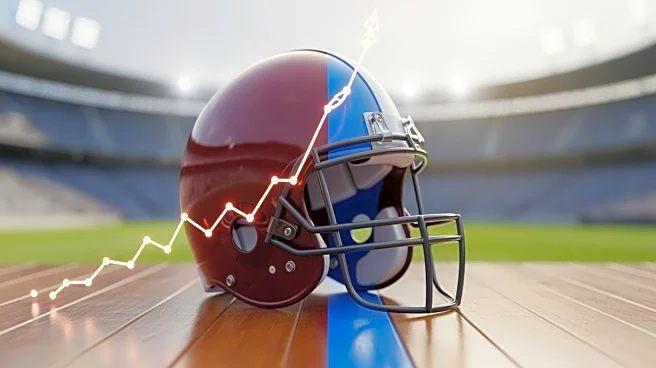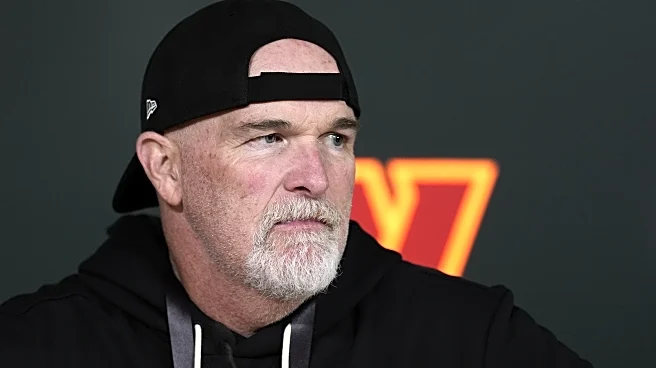What's Happening?
Ezekiel Elliott, a running back for the Dallas Cowboys, has experienced a notable career trajectory since being drafted fourth overall in the 2016 NFL Draft. Elliott's early years in the NFL were marked
by impressive performances, including leading the league in rushing yards during his rookie season. However, his career has been overshadowed by off-the-field controversies and a decline in performance. Elliott faced a six-game suspension in 2017 due to a domestic violence accusation and has been involved in other incidents, such as a confrontation at a music festival. On the field, his rushing yards have decreased, and the Cowboys have struggled to make the playoffs.
Why It's Important?
Elliott's career challenges highlight the pressures faced by professional athletes both on and off the field. His situation reflects the impact of personal conduct on a player's career and the importance of maintaining focus amidst distractions. For the Cowboys, Elliott's performance decline affects their offensive capabilities and playoff prospects. The team's reliance on Elliott underscores the significance of key players in achieving success. Elliott's journey also serves as a reminder of the volatility in sports careers, where early success does not guarantee long-term stability.
What's Next?
Despite recent struggles, Elliott's future in the NFL remains hopeful. At 26 years old, he has the potential to return to his Pro Bowl form with renewed focus and a healthy offensive line. The Cowboys' new head coach, Mike McCarthy, may play a role in revitalizing Elliott's performance and the team's overall strategy. Elliott's ability to overcome setbacks and regain his status as a top running back will be closely watched by fans and analysts.
Beyond the Headlines
Elliott's career trajectory raises broader questions about the sustainability of athletic performance and the influence of external factors on a player's success. His experiences highlight the need for support systems to help athletes navigate personal challenges and maintain their focus. The situation also prompts discussions about the role of media and public perception in shaping an athlete's career narrative.










